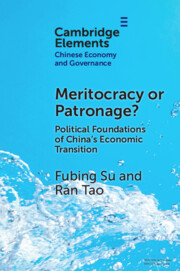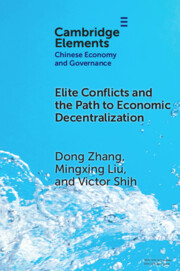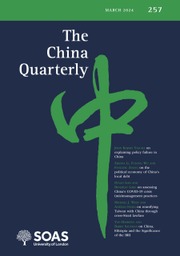Meritocracy or Patronage?
This study interrogates the theoretical and empirical validities of two dominant theories about Chinese state in the post-Mao period. The authors argue that the meritocratic view has under-theorized the innate contradiction between officials' personal competence and political loyalty. In order to survive political struggles, political leaders need to rely on patronage networks to recruit followers and solidify trust, often at the expense of official competence. The popular view also misrepresents China's cadre assessment system in several important ways. The authors supplement this theoretical and anecdotal evidence with a systematic study of provincial level officials between 1978 and 2020. Contrary to the meritocratic view, leaders' economic performance does not increase their promotion chances. Work ties with central leaders, on the other hand, have provided provincial officials with advantage in promotion. This study contributes to general theories of autocratic state and inform the debate about autocratic growth in the political economy literature.
Product details
December 2024Paperback
9781009508001
100 pages
230 × 150 × 6 mm
0.166kg
Available
Table of Contents
- 1. Introduction
- 2. How is the Chinese State Organized? Two Dominant Views
- 3. Meritocracy in One-Party China? A Critical Evaluation
- 4. Provincial Leader Promotion: A Reassessment
- 5. Patronage and Development Path: A New Research Agenda.







